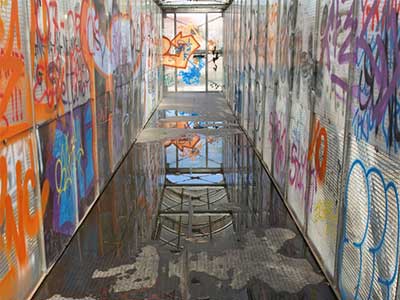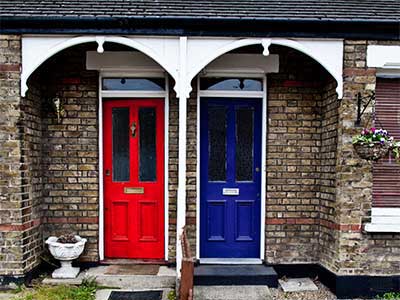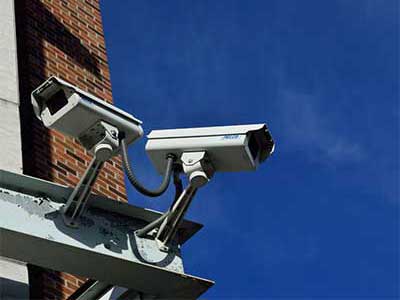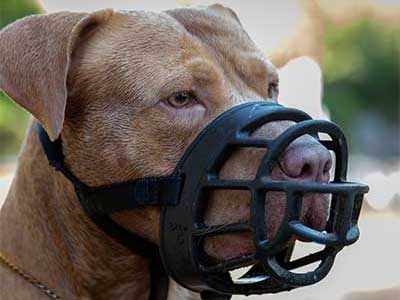Antisocial behaviour and the council

What is antisocial behaviour?
Antisocial behaviour (ASB) is broadly defined as 'behaviour by a person which causes, or is likely to cause, harassment, alarm or distress to persons not of the same household as the person'.
To be considered antisocial behaviour, it must also be a persistent pattern of behaviour and can include things like:
- verbal abuse, harassment and threatening behaviour
- playing music loudly, or at unreasonable hours but not day-to-day living noise
- leaving rubbish in communal areas, or your garden
- hate related incidents based on race, sexual orientation, gender, disability, religion or age
- misusing or mistreating communal facilities
Children playing is not antisocial behaviour.
Behaviour we can investigate
- Rowdy behaviour and drunkenness
- Persistent dog barking or uncontrolled animals
- Throwing objects or liquids from windows or balconies
- Dealing or taking drugs and alcohol-related nuisance
- Verbal abuse
- Intimidation and harassment including stalking and hate crimes
- Damage to property including vandalism and graffiti
- Threats or acts of violence
- Hate incidents motivated by age, disability, faith, race or sexual orientation
- Inconsiderate or dangerous parking and abandoned cars
- Environmental health issues such as dumped rubbish
- Prostitution
Behaviour we cannot investigate
- Cooking odours
- One off parties or BBQs
- Clash of lifestyles including cultural differences or different working patterns
- Cats roaming in private gardens
- Smoking in private gardens and balconies
- Parking issues
- Personal differences and unfriendly looks or stares
- Children riding bikes or skateboards
- Homes that have frequent visitors
- Young people being together in groups, unless loitering and their behaviour is threatening or abusive
The above applies to council housing and leaseholders.
For more information, contact your First Response Officer or Sheltered Housing officer.
When to contact the police
If you, or anyone else, is in immediate danger, call the police on 999.
If any of the following happens, report it to the police:
- arson
- assault
- drug use and dealing
- gun or knife crime
- hate crime
- sexual offences
- threats of abuse or violence
Our tools and powers
The Antisocial Behaviour, Crime and Policing Act 2014 outlines a range of tools and powers local authorities can employ to tackle ASB, such as:
- civil injunctions
- criminal behaviour orders
- dispersal powers
- public space protection orders
- community protection notices
View the Enfield Council Housing Antisocial Behaviour Policy 2023-2028 (PDF, 992.77 KB).
For more information, visit GOV.UK – Anti-social behaviour powers: statutory guidance for frontline professionals.
Noise complaints
We can only investigate noise that happens often and is unreasonable.
For us to investigate a noise problem, it must either:
- greatly disturb the use or enjoyment of a home or other premises
- injure health or be likely to injure health
Our officers decide whether noise is unreasonable based on what the average reasonable person finds acceptable.
For more information, visit GOV.UK - Statutory nuisances: how councils deal with complaints.
Noise we can investigate
- Loud music or TV
- Constant dog barking or other noisy domestic animals
- Burglar or car alarms sounding continuously
- Mechanical plant equipment (AC units/extractors/generators)
- Street performers
- Building sites and home improvements
Building works should only take place:
- Monday to Friday from 8am to 6pm
- Saturday from 8am to 1pm
If loud noise is happening outside of these hours, you can make a complaint.
Noise we cannot investigate
- Babies crying or young children playing
- One-off parties or BBQs
- Noise from reasonable DIY and home improvements
- Daily activities like doors closing, toilets flushing and walking across floors or up and down stairs
- Noise from household appliances like washing machines or hoovers, unless at antisocial hours
- Shouting, raised voices, arguments, laughing
- People talking in gardens
- Doors slamming
- Furniture moving
- Intermittent banging
- Aircraft and railway noise
For more information and to make a noise complaint, see Noise nuisances.
Domestic abuse
Abuse can impact your confidence and wellbeing. Your relationship should be safe and respectful – abuse is never acceptable.
Abuse comes in many forms – psychological, physical, sexual, financial and emotional.
Personal safety is your right.
Everyone deserves a life free from violence. You should seek help if you feel scared or controlled.
Find out how to get help with domestic abuse.
Neighbour disputes

If your neighbour’s behaviour is violent or threatening, always report it to the police.
If you, or anyone else, is in immediate danger, call 999.
A dispute with your neighbour can be distressing. Your neighbour might be unaware that they’re disturbing you or causing you distress.
In the first place, let them know they’re disturbing you. You could do this by talking or writing to them.
Talk to your neighbour
If you feel comfortable doing so, talking to your neighbour is always a good place to start. Explain to them what the problem is and how they can solve it.
It’s important to only talk to your neighbour when you feel calm. Do not talk to your neighbour if you’re feeling angry, as things can quickly get out of control.
If you do not feel comfortable talking to you neighbour, you could write to them instead.
Write to your neighbour
A ‘Dear neighbour’ letter is a polite note you can give to your neighbour or put through their letterbox. You can tell your neighbour what behaviour is disturbing you and ask them to stop.
You can print and complete our Dear neighbour letter template (PDF, 74.16 KB).
If you do not have a printer, you can copy it onto a piece of paper.
Contact your neighbour’s landlord
If you know your neighbour’s landlord, you could contact them and see if they can help. The landlord could be a housing association.
Other ways to resolve a dispute
If you’ve spoken or written to your neighbour and the problem has not stopped, you can:
- find further information on GOV.UK - Resolving neighbour disputes
- get practical advice from Citizens Advice, Complaining about your neighbour
- report it to us
Gathering evidence

It’s important to gather evidence on antisocial behaviour (ASB) and noise incidents. It helps us understand:
- what the problem is
- when it’s happening
- who’s involved
- how it’s affecting you
Your evidence can also be used (with your permission), if the case goes to court. We'll ask you to upload your evidence when you make an ASB or noise report.
ASB Help is a charity helping people suffering with ASB issues – they give detailed information on how to gather evidence.
Incident diary
By using our incident diary (PDF, 142.35 KB), you can:
- keep a note of all incidents
- complete this on your computer or mobile
- print it out and complete by hand
- use the headings as a template and keep your own records
Other evidence you can gather includes:
- photos
- videos
- written correspondence like:
- letters
- emails
- text messages
- social media posts
Control of dogs in public

Public Space Protection Orders
Public Space Protection Orders (PSPO) were introduced under the Antisocial Behaviour, Crime and Policing Act 2014.
They are intended to deal with nuisance or antisocial behaviour that:
- takes place in a particular area
- is detrimental to the local community’s quality of life
We recognise that most dog owners are responsible and respectful to their local community. However, we do receive complaints about dog fouling and the behaviour of some dogs.
Enfield has a PSPO covering:
- dog fouling
- dogs on leads
- areas where dogs cannot go
- the most number of dogs that can be walked at one time
See current Public Spaces Protection Orders.
Dog fouling
You must pick up your dog’s poo and you must have an appropriate way to do this. This can be:
- poop scoop bags
- disposal bags
- another suitable container
It cannot be a:
- trouser, coat or another pocket
- handbag, sports bag, or rucksack
- purse
Dogs on leads
In all areas of Enfield, your dog must be kept on a lead no longer than 2 metres, except when:
- in a park larger than half a hectare
- in a green burial area
- the landowner, occupier, or person in charge of the land has given permission
- asked to put your dog on a lead
If you are in an area where your dog doesn’t have to be on a lead, you must do so if asked by an Enfield authorised officer. This may be to prevent a nuisance or behaviour by the dog likely to cause annoyance or disturbance to:
- a person
- another animal
Areas dogs cannot go
You dog is not allowed at all in the following clearly signed areas:
- children's play areas
- multi-use games areas
- sport and recreational facilities like ball courts, pitches, pool areas
- sensitive areas or specific horticultural areas within parks
Number of dogs walked
Walking a maximum of 4 dogs at a time (or up to 6 if licensed).
Offences and fines
As a dog owner, you must follow the PSPO.
If not, you are liable for a £100 fixed penalty notice fine unless:
- the landowner, occupier, or person in charge of the land gives you permission
- you have a reasonable excuse for not complying
- you are exempt because you:
- are registered as a blind person
- have a disability which affects your mobility, physical coordination, ability to use your hands or ability to lift, carry or otherwise move everyday objects
- have a registered assistance dog
Request an antisocial behaviour review
The antisocial behaviour (ASB) review process enables victims of antisocial behaviour to request a review of their case where persistently reported problems have not been addressed.
The process is designed to make sure that no one suffering the effects of ASB falls through the net and that agencies come together to take a joined up, problem solving approach to find a solution.
We want to make sure that everything that can be done is being done.
When to request an antisocial behaviour review
You can request an ASB review when:
- you have reported ASB to the council, police and/or registered housing provider 3 times in the last 6 months
- no action has been taken
- your case has been closed – if it is still open you must wait for the outcome
An ASB review cannot be used to report general acts of crime, including hate crime.
If you need to report a new ASB incident, see antisocial behaviour.
To check the status of an existing report, make contact with your allocated caseworker or visit our antisocial behaviour page.
An ASB review is not a complaints process. If you are unhappy with a council service, please use our complaints process.
Start an antisocial behaviour review
If you decide to start an ASB review, you will need to provide:
- dates of each time you have complained
- details of where you complained (name, organisation and/or any reference provided)
- information about the antisocial behaviour that occurred
You can request an ASB review by emailing asbu@enfield.gov.uk (quoting 'ASB review').
Report antisocial behaviour, noise or domestic abuse
Before making a complaint
We may not be able to investigate incidents of low-level antisocial behaviour (ASB) that only happen once, like:
- DIY noise
- noisy neighbours
- shouting insults
- damage to property
Keep a log of all incidents and only make a complaint if the issue occurs more than 3 separate times in the past month. We will not investigate your complaint any more urgently if you submit 3 complaints of the same incident.
Before you report ASB or noise, please make sure:
- the problem is one we can help you with
- if the dispute is with your neighbour, you’ve tried to resolve it
- you’ve gathered evidence to support your complaint
Housing association tenants
If you’re a housing association tenant, contact your housing association directly.
How to report ASB or noise
- Online – use the 'Report antisocial behaviour' form above
- Call us – 020 8375 8008 (between 9am and 5pm)
- For noise nuisance – download The Noise App from the App Store or Google Play and select Enfield Council from the drop-down option – view The Noise App instructions (PDF, 249.39 KB)
We operate an out of hours noise team on Friday and Saturday nights between 9pm and 3am. If you're affected by noise during these times, you can report it by calling us on 020 8379 1000. We will contact you to arrange a visit and assess the noise.
Please note that often the quickest way to make a complaint is by completing the online e-form. If you are calling, the officer responding will complete the e-form which will then be sent through to the team to assess.
Reporting ASB online tips
You’ll need the following information about the incident(s):
- when it happened (date and time)
- who was affected
- how the incident made you feel
- any evidence you gathered
- police reference number (if you reported it to the police)
If the incident involves a number of different aspects of antisocial behaviour (such as verbal abuse, physical abuse), select the one area that affects you the most, and then describe the other issues in the text box provided.
After you make a report
After receiving your report, we aim to assess it within 24 hours and will contact you within 5 working days.
If we can help you with the issue, we will allocate your case to one of our antisocial behaviour officers. They will keep you updated on progress.
If we cannot help you with the issue, we will let you know.
What happens next
Once we receive your antisocial behaviour (ASB) submission, you will be contacted by an ASB officer.
Our antisocial behaviour process
We aim to follow this through to case closure or legal enforcement.
Each case will have its own level of severity and varying interventions, however all cases should include:
- gather and investigate
- interventions and monitoring
- draw the hard line
Stage one – gather and investigate
On receipt of an ASB, the complainant will be contacted within the time frame and an action plan created. The plan will include specific actions and measures about how the ASB allegations will be investigated.
A tenancy and leaseholder warning letter will be issued to the perpetrator as well as an invitation to discuss the allegations.
During this stage any referral to internal or external services such as Adult Social Care, mental health or police should be explored and made, if the ASB warrants it.
Stage two – interventions and monitoring
Should the ASB issues continue or escalate after Stage one, the officer will issue a Community Protection Warning (CPW) to the perpetrator.
Identified and relevant interventions will be offered, such as mediation, acceptable behaviour agreement and a meeting with professionals.*
The officer will determine the duration of monitoring once interventions have been agreed and completed.
*Failure to participate in an intervention may result in case closure or an issuing of a Community Protection Notice (CPN). Dependent on the severity of the case.
At this stage, the perpetrator will also be informed that, should the behaviour continue, a CPN will be issued as the final stage warning.
Please note both the complainant and perpetrator can receive a CPW if an ongoing dispute fails to reach a resolution.
Final stage – enforcement, draw the hard line
If the ASB continues or escalates within the monitoring period of the CPW, a CPN will be issued.
If the case was closed at Stage two, but another incident occurs within 4 weeks of the case being closed, a CPN should be issued.*
Failure to adhere to the terms laid out in the CPN issued, will result in legal action. Simultaneously, we will seek possession of the property in serious cases.
*If the case was closed and no incidences occurred within a 3 month period, the case will start at Stage one - again, dependent on the severity of the case and recurrence.
Enhanced Concierge Security Service

In October 2024, we introduced an enhanced concierge security pilot to help prevent antisocial behaviour on council housing estates. The security service works with the local community, police, council, and other agencies to monitor and reduce problems through regular engagement.
The pilot includes neighbourhood patrols from 6pm to 4am, 7 days a week. These patrols focus on enforcement, support, mediation, and community engagement.
As this is a pilot, the service cannot be everywhere at once, so has been set up on a 2-tier approach:
- frequent visits (programmed)
- infrequent visits (reactive)
Resident input is vital to shape the service to meet community needs. Information about locations, times, and types of antisocial behaviour will help the patrols enforce the estate effectively.
The main goal is to make residents feel safer, deter offenders, and improve the quality of life and social cohesion in the estates.
Please use the link below to share your thoughts on how we can improve security in your community.
Give us your feedback
We value your feedback as we look to improve our service.